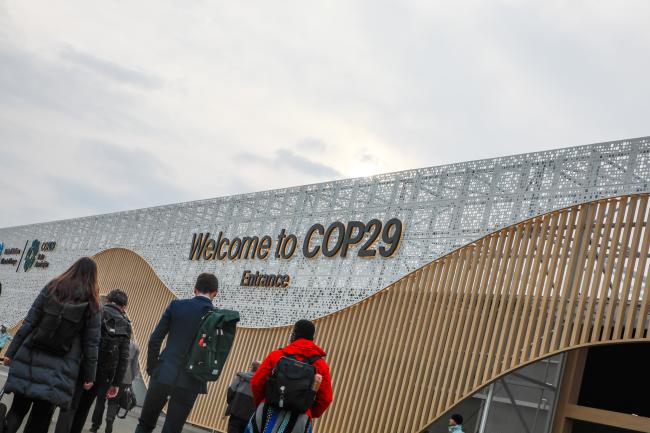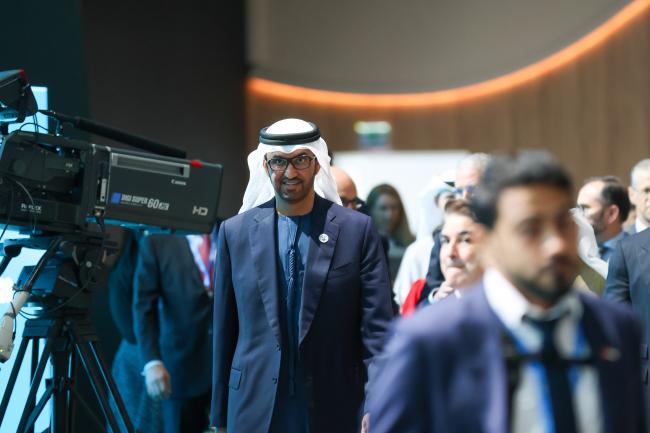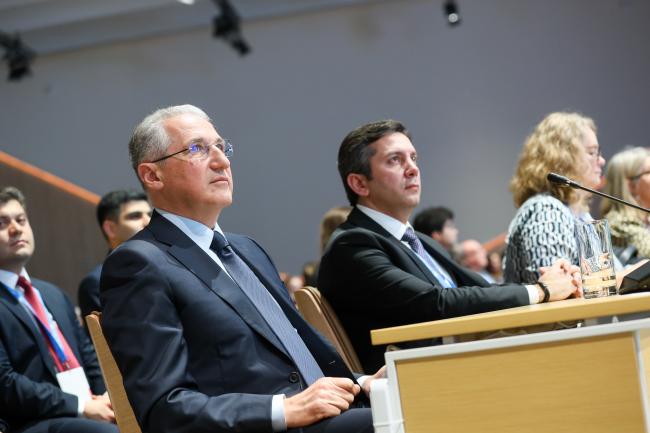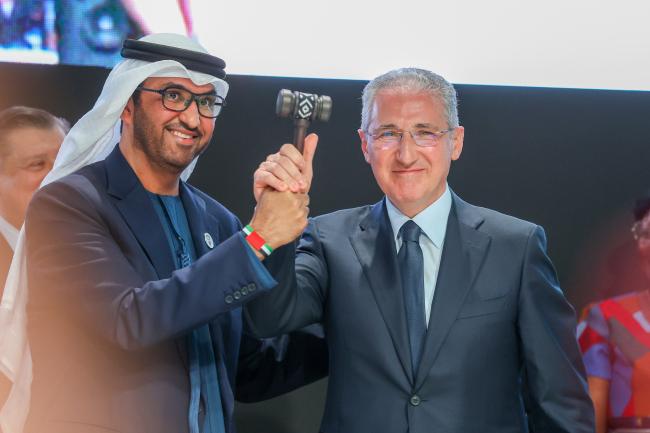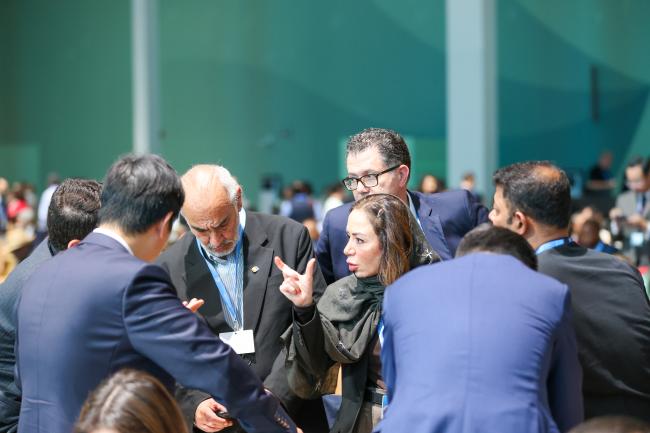The 29th session of the Conference of the Parties (COP 29) to the UN Framework Convention on Climate Change (UNFCCC) started with the opening plenary–only to be abruptly suspended to allow for additional consultations on the meeting agendas. Resumption of the plenary was repeatedly delayed, leaving delegates idle for most of the day. It was an anticlimactic start.
Want to dig deeper into today's talks? Read the full Earth Negotiations Bulletin daily report.
So-called “agenda fights” showcase just how politically charged the climate change negotiations are. Intense debates ensue on how to refer to issues, and where to put them on the agendas. These debates are not semantic. They frame and scope the substantive negotiations to come. Even so, disagreement over whether and in what context to address individual issues held up the launch of proceedings on all issues for the entire day.
In the morning, COP 28 President Sultan Al Jaber (United Arab Emirates) passed the torch to COP 29 President Mukhtar Babayev (Azerbaijan), who highlighted the key expectation for the meeting: to deliver a fair and ambitious new collective quantified goal on climate finance (NCQG). He underscored the next round of nationally determined contributions (NDCs) under the Paris Agreement should be informed by the outcome of the first Global Stocktake (GST), including with regard to transitioning away from fossil fuels in a just and orderly manner, taking into account national circumstances, pathways, and approaches.
UNFCCC Executive Secretary Simon Stiell stressed that “climate finance is not charity,” but in the self-interest of all parties: “If two-thirds of the world’s nations cannot afford to cut emissions, every nation pays the price.” Stiell also underscored the value of the biennial transparency reports that countries have to submit by the end of 2024. They provide a clear picture of the state of play to avoid “making decisions in the dark.” Similarly, he underscored the importance of defining indicators to measure progress toward the Global Goal on Adaptation.
Plenary suspended after these broad opening remarks, eventually reconvening at 7:30pm. Parties adopted all meeting agendas without any of the additional items that had been proposed for inclusion, with the understanding that Presidency consultations will be conducted on these proposed items. They also added a footnote specifying that the placement of the Dialogue on GST Implementation under “matters relating to finance” does not prejudge the scope of discussions on the matter.
The EU, the Alliance of Small Island States (AOSIS), the Umbrella Group, the Environmental Integrity Group (EIG), the Least Developed Countries (LDCs), and the Independent Association of Latin America and the Caribbean (AILAC) underlined that all mandates of the GST decision must be carried forward and reiterated their understanding that adequate space will be provided for these discussions in Baku. The Like-Minded Developing Countries (LMDCs), the African Group, and the Arab Group underlined that the focus of the Dialogue on GST Implementation is on finance alone, and lamented efforts by some parties to “renegotiate agreed outcomes.” On the first day of the COP, it seemed trust was scarce.
To receive free coverage of global environmental events delivered to your inbox, subscribe to the ENB Update newsletter.
All ENB photos are free to use with attribution. For the 2024 UN Climate Change Conference Baku, please use: Photo by IISD/ENB | Mike Muzurakis

